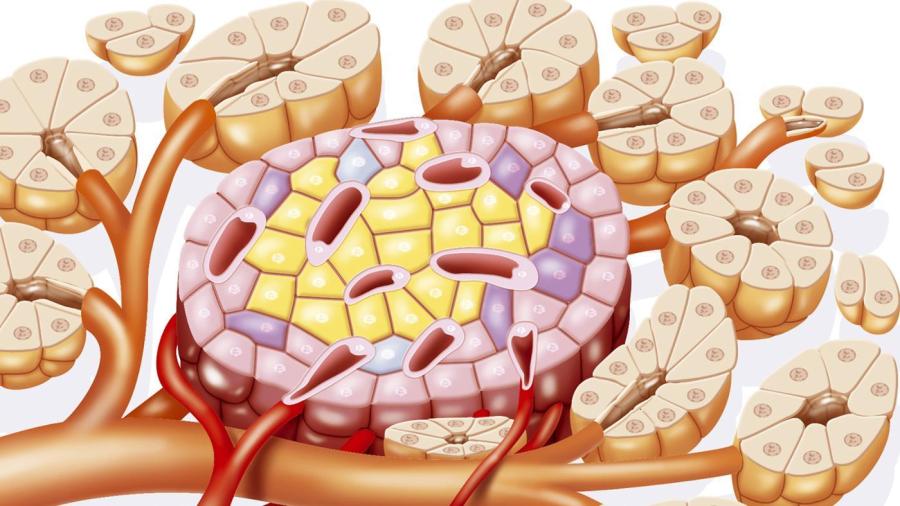How Do the Digestive and Endocrine Systems Work Together?

The digestive and endocrine systems work together, mostly through the pancreas, to produce and disseminate digestive enzymes. The endocrine system contains several different organs and glands, which are the hypothalamus, pituitary, parathyroids, adrenal glands, reproductive glands, thyroid and pineal body. The primary role of the endocrine system is to produce important hormones that tell the digestive system when to start digesting food and when to stop.
Most of the glands in the endocrine system are the main hormone producers in the body, although some other organs, such as the heart, lungs, brain, kidneys, liver, thymus and skin, also produce hormones, which are then released throughout the body. In addition to sending signals through the pancreas to tell the digestive system when to start working, the endocrine system helps to control and stabilize mood, development and growth over periods of time. The endocrine system also supports proper tissue function and plays a large role in controlling sexual function and reproduction. The endocrine system regulates metabolism, which occurs at different rates among the population. In addition to sharing responsibilities with the digestive system, the endocrine system collaborates with the nervous system, which controls life functions, such as breathing and movement.





